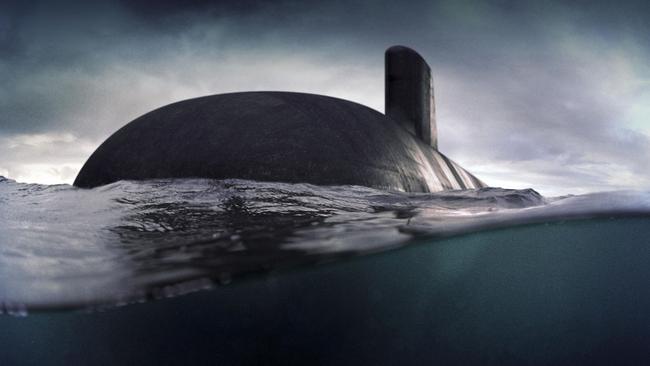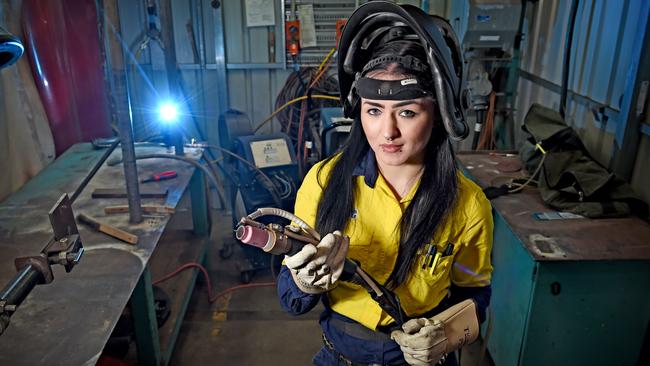Two major defence deals will secure welding jobs at Adelaide shipyards
SA’s shipbuilders will train apprentice welders for the future submarines – and some of it will be done in virtual reality, in two major deals just struck.
Jobs SA
Don't miss out on the headlines from Jobs SA. Followed categories will be added to My News.
Two major deals have been struck to avert a national welder shortage that threatens the $90 billion naval shipbuilding project, in a boon for South Australia’s defence industry.
Naval Group will announce today that it will send its apprentice welders to be trained at Adelaide shipbuilders ASC, while the Naval Shipbuilding College announced on Wednesday that it would use virtual reality to teach the critical skill.
Weld Australia have warned for years that without enough Australian welders, companies running the nation’s enormous naval shipbuilding programs will have to bring in overseas workers who have the highly specialised skills.
Naval Group, which is designing the Attack Class future submarines, is getting set to ramp up production over the next few years and will start sending its apprentices to be trained at ASC in January next year.

It’s the first part in a Framework Agreement signed between Naval Group and ASC in February, and will be announced today at the Pacific 2019 conference in Sydney.
Naval Group chief executive officer John Davis said the agreement to work together on education, training and workforce needs would stand for both the future submarines and the sustainment of the existing Collins Class fleet. “This initiative will provide apprentices with a once-in-a-lifetime opportunity to learn from the best Australian and French minds in submarine design, build and sustainment,” he said.
ASC chief executive Stuart Whiley said the apprentices would be joining a “high-performance submarine production environment”.
“During their time at ASC, apprentices will be exposed to over 30 years of experience, lessons learnt and a safety culture developed through the construction and sustainment of the Collins Class,” he said.

Meanwhile Weld Australia will take advantage of augmented reality training, simulation and virtual reality to ensure welding apprentices have the right skills. Information will be shared between various organisations to ensure consistent education across Australia.
Chief executive officer Geoff Crittenden said the shortage of qualified and certified welders was significant.
“(This collaboration) will help ensure that the defence prime contractors have access to the skilled, qualified welding professionals required to successfully deliver the naval shipbuilding program,” he said. The nation’s defence heavyweights have also committed to working together on a Strategic Workforce Plan to ensure there are enough skilled workers to deliver the nation’s $90 billion naval shipbuilding program.
The companies, including Naval Group and BAE Systems which are building the Future Submarines and Future Frigates at the Osborne shipyards, will continue to collaborate with the South Australian-based Naval Shipbuilding College on a four step plan which would start by defining the industry’s skills demands and put in place plans to deliver them.
Naval Group also announced on Wednesday that, in collaboration with 16 other partners including Adelaide’s ASC Shipbuilding and all three of Adelaide’s major universities, it was examining the establishment of an Australian Maritime Development Centre (AMDC). The centre, to be launched early next year, would be spread across four states and would seek to “foster industry wide gains through independent and collaborative research, open innovation, and the development of new intellectual capital’’.
Naval Group also this morning will announce a partnership with Flinders University, under which Flinders will conduct a range of research trials including applications of mobile machining robots and exoskeleton technologies.
- with Cameron England

